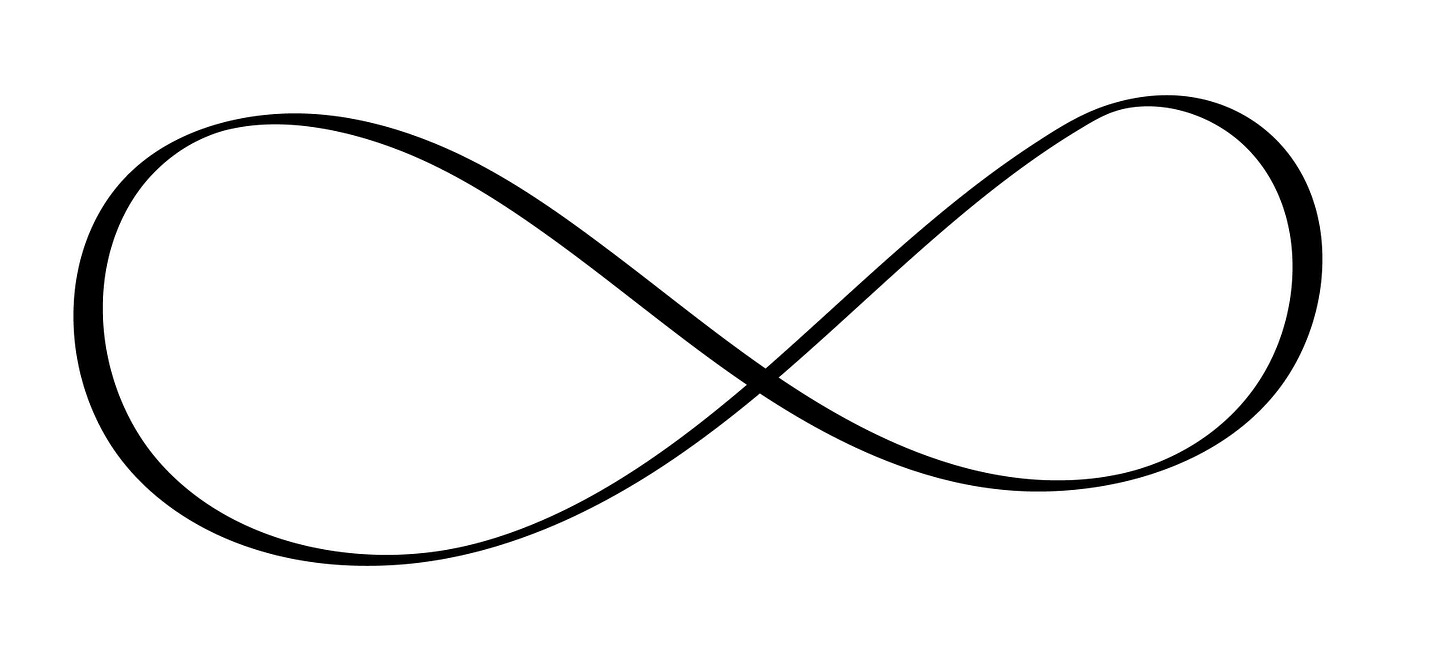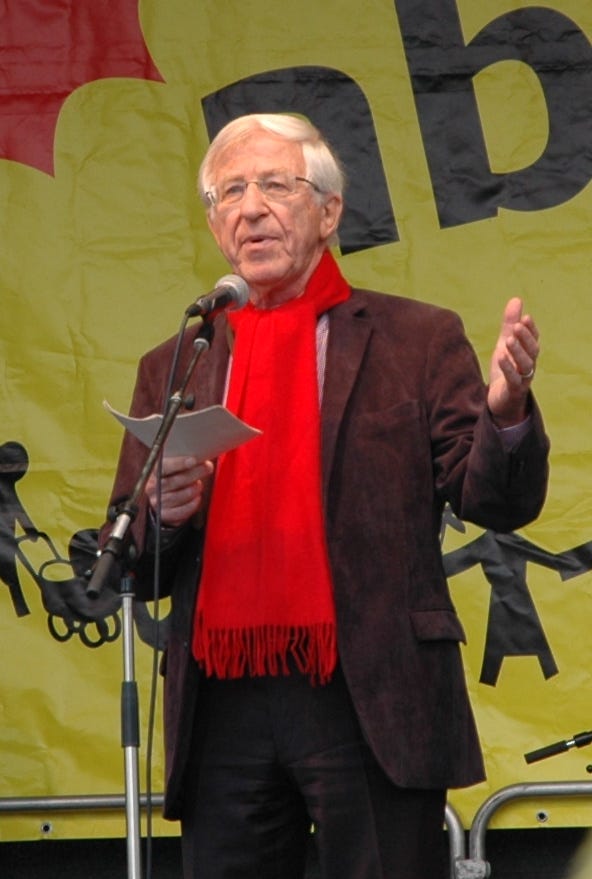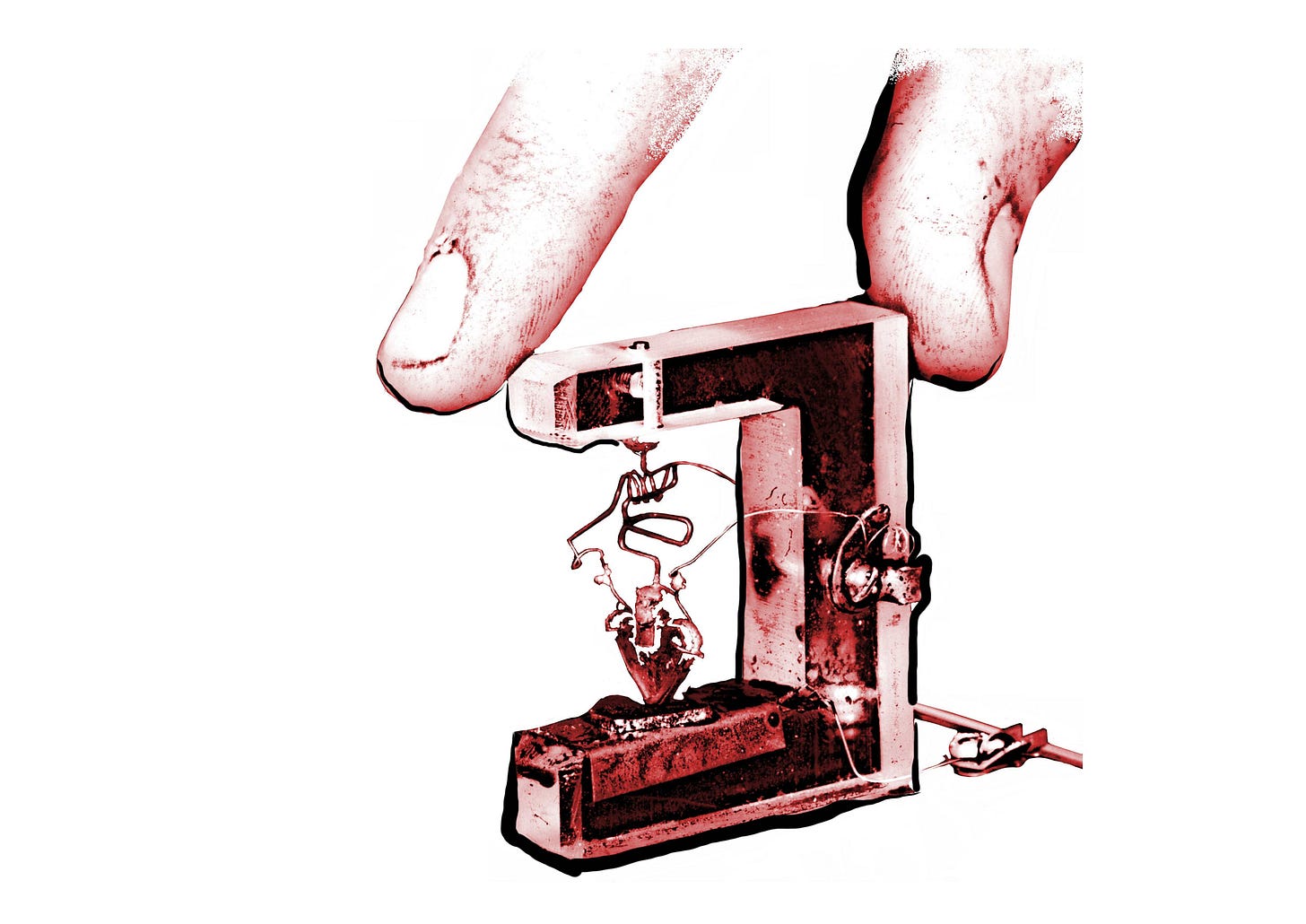If Germany woke up in a new world with the outbreak of the war, it was only because it previously had made itself comfortable in a long slumber. And because this has afflicted the entire classe politique, any one-sided, not to mention party-politically motivated, apportionment of blame misses the dramatic nature of the results. This boils down to a puzzling question: How could such a fantastical worldview gain the upper hand? How could the belief in buzzwords replace realities? Quite obviously, because it was possible to effectively outsource them. Seen from close up, at any rate, the current Weltbeglückungsaktion1 of energy source transitioning turns out to be a kamikaze act: a jump from an airplane, in the firm belief you will already be able to sew you’re parachute when falling into the depths - even though the template may never have been tested. Now it is by no means the case that the author of these lines doubts the necessity of an environmentally friendly, intelligent energy supply, quite the contrary. But the devil is in the details and:
The opposite of good is well intentioned. (Kurt Tucholsky)
In a curious way, the argument which former Economics Minister Sigmar Gabriel sought to justify his Nordstream-2 involvement is quite apt, because he claimed he’d only gone through what everyone thought at the time. While this may be a highly questionable argument in light of German history, nevertheless it captures the facts precisely: Zeitgeist, esprit de corps, groupthink. The pious consumer belief that the world's goods will rain down on the well-off like manna from heaven. We are a rich country – those who have, to them will be given! Consequently, no one in the government even thought of relating what the occupation of Crimea had just demonstrated to themselves. Why should they? If the market is the solution, there is no need to deal with the adversities of the political economy and the dirty tricks of power. And yet this image of Sleeping Beauty tells only half the truth. For if any part of the personality should have fallen into a deep sleep, it was not the busy consumer who, when not on a shopping spree, chirps out his omnipresent wisdom into the world of social media, but rather that skeptical entity previously known as reason.
The fantasist denies the truth to himself, the liar only to others. (Nietzsche)
The sleep of reason gives birth to monstrosities. In this sense, Putin's war is not so much the cause of the current calamities as it is a catalyst that's brought the monsters dwelling in the shadows to light. Now that the pipelines have been destroyed, the energetic inflow has been cut, the political discourses of past decades are proving to be wishful thinking, and you can watch in fast motion as a generational project melts down into heaps of misery. If we’d already had to say goodbye to State pacifism with the turn of the century, the looming energy fiasco threatens to unleash a wave of deindustrialization. Nevertheless, the question remains: What exactly has vanished into thin air? And how could this zealously pursued loss of reality take hold of an entire society? The beginnings of this development go back to the 1970s – and are the founding inspiration for the Green Party. With the failure of the student movement (primed by the oil price shock, stagflation, and the realization of the limits of growth), the systemic doubt that had grown homeless found a substitution for the worker in the environment. Nature, which had been violated, was an ideal object insofar as it allowed itself to be taken over without complaint and, unlike the real-life worker, did not rise to an indignant "Why don't you go over there?" By making the environment a mirror for one's sense of alienation, the march through the institutions was started (toward official bliss), while, on the other hand, one could remain faithful to systemic doubt and one's own mission to redeem the world. From a psychological point of view, the environment was a true gift from heaven. For with it, beguiling supremacy came into view: a moral self-empowerment in which the adversary found himself in the role of an environmental polluter, but you found yourself on the side of the good. Nuclear power, no thanks! And how simple it was: one bumper sticker and the world was divided into good and evil. This schism was all the more seductive because it meant the stumbling blocks of political economy could be left behind. Henceforth, the plights of the earth's surface were passé, and a politics of heaven was promised. In any case, the exit from the system and history were completed with the leap into the environment. Now this walk into subcomplexity (Imagine, it is war and nobody goes!) does have its advantages. Just as buying morality frees you from moral dilemmas, marriage with nature allows you to revel in possession of eternal truths, not having to deal with concrete problems. Because everything is a question of consumption, one buys the superfood in the organic store – and is miraculously purified. From an accounting point of view, its ecological balance may occasionally turn out to be as devastating as the environmental destruction biofuel has left behind on Sumatra and Borneo is as irrelevant as the fact that the forest dieback of the 1980s did not want to occur. Since the consumerist international subscribe less to reality than moral self-improvement, environmental activism turns out to be primarily a narcissistic fantasy of self-empowerment. In a curious way, do-gooderism could be understood as the twin of neoliberalism - with the only difference that here a moral profit is reaped (while the losses are imposed on the deplorables). The environmental activist Franz Alt embodied this logic in an inimitable way.
The representative of the sun on earth
That he never tired of pointing out that wind and sun do not send bills was an appeal to enlightened consumers; politically explosive, on the other hand, was where he declared himself, in the consciousness of the avant-gardist, to be the deputy of the sun on earth – a joke that alludes with great precision to ordination by a higher power, indeed, to the divine graciousness of a Sun King.
Because narcissistic self-empowerment obscures and outstrips any realpolitik, it is no coincidence that a devout apocalyptic certainty drives contemporary activism; indeed, that current welfare committees are characterized by stupendous historical blindness. That they swear by sustainability as an eternal truth of the Anthropocene doesn’t make matters any better. So, where does sustainability come from? What back story made this forestry term the catechism, indeed, the hot shit of all eco-freaks? It may well be that the movement’s spokesmen had digested Paul Ehrlich’s Population Bomb or The Limits to Growth - but ultimately, the insights represented there were boiled down to the complexity of a bumper sticker. And this with good reason. For if the first Green faction, who prided themselves on not working with computers, had allowed themselves to be drawn into the their worldview’s prehistory, they would have discovered a miraculous Blue Wonder — the realization they’d set out for green shores within the midst of a computer simulation. Therein lies the whole irony of the story (which, of course, has escaped from a history-less movement). That is because whatever tools had been acquired originated in the digitization project of modernity. From a more practical point of view, let's start with the solar cell. Naturally, it doesn't owe much to the wisdom of the nature boy who conceived his Utopia far away from society; instead, it represents a waste product of semiconductor technology.
It was only because of the discovery of silicon's hermaphroditic nature and that it was seen as the most promising candidate for storage and processing that the 1950s were able to come up with a solar-powered radio. But that's not the end of the story. Just as with photovoltaics, the climatic view also owes its origins to the modern digitalization project. If you follow the intellectual origins which are at the root of the Club of Rome's model calculations and the limits of growth, you end up with computer pioneer Jay Forrester. After transforming the vacuum tube into a digital storage device in the 1950s, he started building a nationwide air surveillance system to defend the U.S. against the nuclear threat from the Soviet Union2. After completing this project, Forrester became a professor at the Sloan School of Management, where he helped MIT develop modeling software initially designed for brewery logistics and subsequently used for urban planning. But this program had its big moment when researchers began thinking about calculating the earth's resources. In short, the climatologist's view was based on computer simulations, which, in turn, sprang from the most energy-hungry system that society had realized to date. The fact that today every smartphone can handle a greater volume of data than this energy-guzzling juggernaut simply has to do with the fact that semiconductor technology has increased its energy density by a factor of billions since the 1950s. Thanks to this model of true sustainability, satellites can be launched into space from where all conceivable climate data is sent back to Mother Earth - a networking logic that's made us happy with our use of the Internet.
However, this intellectual connection (the chain that leads from quantum mechanics to the transistor, from computer simulation to satellite technology, and finally to the first climate models) has been sacrificed to a nature-loving political romanticism. That the Machine is of the devil and human intervention in nature should be reduced as close to zero as possible may warm the heart of the apocalyptic - it makes you forget that tools, which alone can detect the problem and contribute to its solution, are products of the very mentality denigrated as fossil and toxic. Now isn't this just an example that the enemy of the good is the good-meaning, the enemy of morality is selling morals; worse still is that such a self-deception amounts to a form of an intellectual self-cannibalization (or metaphorically speaking: The monstrosities that spring from sleep falls over the remaining sanity and reason here). If we take the energy transition project seriously, it is clear that the only way to contain the volatility of renewable energies is to build a smart grid. This can be understood as an automated Internet in which the distributed network nodes communicate with each other - on the one hand, to record the energy requirements of consumers, and on the other hand, to draw conclusions about future energy behavior from users. Because this system is a distributed (if you will: a grassroots democratic) network, the decisive desideratum is that this network can capture every possible point of view: that of the end consumer as well as the homeowner who wants to feed the electricity from his solar system into the grid, and also the Panoptical view of the system itself, from which total energy consumption can be represented and analyzed. Only through such a web of knowledge, which is a technological and a political generational project, can the blueprint of the future infrastructure be obtained, with which the society of the future can be supplied (energy agnostic, as the terminus technicus reads). But neither the grid nor any infrastructure measures have been tackled - with the result being that many municipal utilities don’t even know who needs what, where and when in terms of energy. That one has made the bold decision to tackle energy transition but has left out the pre-requisite of its possibility (the knowledge network) is a striking proof of how much the sun children have given themselves over to intellectually flying blind. Ultimately, this blindness can’t be explained rationally but only from a religious point of view. Only this explains why - even before the prospectus of the looming blackout – people were capricious about the schism between good, renewable and bad, fossil energies. And this, like any self-knowledge, is perhaps the bitterest insight. Namely, that ecology is the problem it thinks it is solving.
Now intellectual misery is not a political party property. If you get to the heart of the current calamities, you could say that the energy crisis brings to light a long-hidden intellectual crisis - the failure of a classe politique that has refined its intellectual inertia into a worldview, indeed, a form of moral supremacy. If the financial crisis was already an object lesson in how the Masters of the Universe succumbed to their own magic spells, the energy crisis brings to light that moral supremacy is not one whit better than greed. In a curious way, the merit order principle, which should have managed the transition to the beautiful, brave new world of renewables, reveals the extent to which its creators pay homage to a consumerist worldview, indeed to wishful thinking. What do you do if you don’t want to lend a hand yourself? You organize an auction ("because the market will take care of it"). What is forgotten is that the market lives on abundance - and goes crazy in times of scarcity. And so the beautiful arrangement turns out to be a Fool’s errand. Imagine an art auction in which each painting receives the price of the work of art that’s achieved the highest price (say: that of a Picasso). Instead of taking the absurdity of this logic into account and burying it as quickly as possible, one ponders how to tax the excess profits - or stoops to making scarcity a social virtue (“The washcloth is a useful invention”). Here, neoliberal Market confidence merges with a faith in the State, indeed an authoritarian Paternalism, reminiscent of the control mania of the Communist 10-Year Plans. Unlike the financial crisis, symbolic politics is no longer enough here. Whereas during the financial crisis the lack of money could be dealt with by freshly printed money (“It’s only money”), the shortage is now affecting the Capitalist operating system itself. However, the Machine’s standstill is not attributable to the Proletarian’s strong arm (“All wheels stand still when your strong arm wills it”) but to the intellectual weakness of a society that, having reached the end of history, has allowed reason to fall into a deep slumber, indeed, a form of derangement. And if you don’t wake up, you will wake up in a world you don’t even wish to dream of. Blackout.
1Weltbeglückungsaktion is a compounded word of Welt [Globe, World], Beglückung [Happiness, Deeply Joyful], and Aktion [Action, Campaign, Initiative] that can have connotations of a worldly or global feeling of profound happiness about the carrying out of a specific activity. In this case, it’s the profoundly joyful, socially accepted feeling regarding the current global campaign to completely transitioning to sustainable, renewable energy that, as Martin is pointing out, is really an apocalyptic act that’s divorced from any actual problem-solving. It’s as if real thinking about practical solutions has been, like the proverbial baby, thrown out with the bathwater in colloquial terms. [Translator’s Note]
2Initially started as the Whirlwind I project in 1951, The Semi-Automatic Ground Environment (SAGE) computer system is considered the largest, most energy-hungry computational system ever built. [Translator’s Note]










